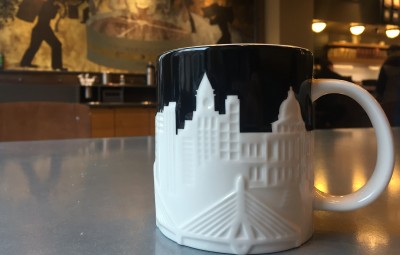
Whether it’s consumed to invigorate the body or to provide warmth on a chilly afternoon, coffee has been an essential staple in one’s daily routine. Its consumption is also linked to health benefits such as the decreased risk of getting colorectal cancer, according to a paper published Friday by a University of Southern California research team.
The study, “Coffee Consumption and the Risk of Colorectal Cancer,” was based on the fact that coffee consumption has a vital influence over the functions of the bowel. Stemming from that connection, the team studied risk and protective factors such as diet and linked them to colorectal cancer, said senior author and USC Norris Comprehensive Cancer Center director Stephen Gruber.
“Coffee tastes great,” he said. “It is safe and likely to be associated with health benefits. Increasing amounts of coffee consumption is associated with decreased risk. The more you drink, the lower the risk.”
The study associated moderate coffee consumption with a 26 percent reduction in the chance of developing colorectal cancer. Furthermore, when participants drank more than two and a half servings of coffee a day, the research showed a 50 percent decrease of colorectal cancer risk.
The observational study used a sample size of 9,242 and assessed the subjects’ diet and personal and family medical history through interviews and questionnaires, juxtaposing samples with and without colorectal cancer. Conducted since 1998, Gruber said the study took place in Israel because of its “well-characterized population,” which is essential for a holistic approach. The study observed the ethnic subgroups of Ashkenazi Jews, Sephardic Jews and Arabs for their distinctive genes.
“One of the elements of that was looking at beverages that people drink,” Gruber said. “We asked everyone in the study about their beverage consumption since the assumption of the study. Then we compared the dietary patterns of people with cancer to the dietary patterns of people without cancer.”
Nevertheless, Gruber said the most potent way to diminish colorectal cancer’s risk is getting a colonoscopy.
“Colonoscopy is unequivocally the best tool of reducing the burden of colon cancer in the population,” he said. “I would not prescribe coffee, but I would say that drinking coffee is associated with some good news.”
Roger Giese, a chemistry and biomedical science professor at Northeastern University, approved of the study’s results. He said they are consistent with other studies conducted in the field.
“[The study] opens up an opportunity to why the coffee maybe having this effect [is] associated with this result and potentially bring[s] down the swarm of cancer,” he said. “And it has this benefit that’s quite nice, as the authors pointed out. People who drink coffee should feel good about it now, given this kind of data.”
However, Giese said the study does not necessarily encourage people who have not been drinking coffee to start consuming it.
“Caffeine is the whole other issue in terms of health — it’s a separate issue,” he said. “But if someone is a coffee drinker, then for them to just enjoy it and maybe even drink some more seems to be a good idea.”
For future research, Giese suggested additional epidemiology studies conducted in other populations in order to be cognizant of other possible factors.
“I think [additional epidemiology studies] will also encourage animal studies, where one considers coffee as a complex substance and just to point out there are many ingredients that might play role in one way or another,” he said.
Standing by George Sherman Union’s Starbucks, Amie Larum, a freshman in the College of Arts and Sciences, enjoyed the Starbucks pastry she just bought. Despite not being an avid coffee drinker, Larum recognized its health benefits.
“I don’t know much about [the study], but obviously it’s a good thing,” she said. “Coffee has benefits too. [But] I don’t want to rely on it on the energy that it gives. People definitely rely on it for energy.”


















































































































